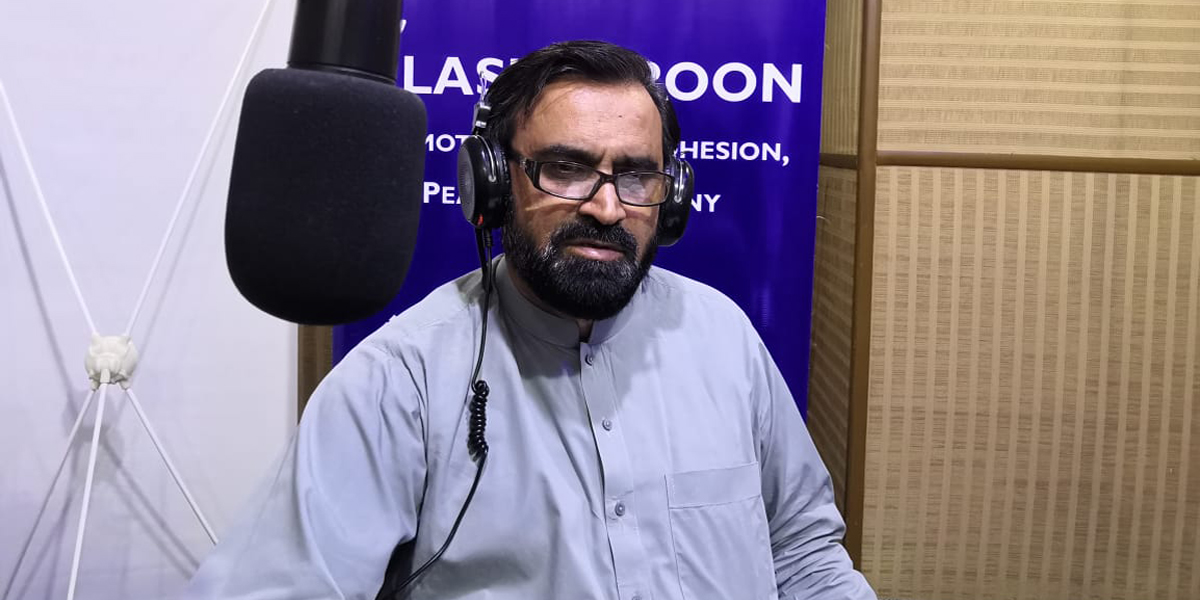The 153rd radio program as part of the Center for Research and Security Studies’ (CRSS) counter-radicalization initiative Ulasi Taroon (Social Cohesion) aired on the subject theme.
The program highlighted the need to resort to dialogue, discussion and developing mutual understanding on the conflicting issues as the most effective tool for peaceful coexistence and conflict resolution.
The first guest on show, Mr. Shakeel Wahid Ullah, a columnist and writer by profession, noted that dialogue is one of the most effective tools to address conflict, misunderstandings and promote cohesion in the society, and is equally effective for the conflicts at both local and national levels.
While the parties to a conflict should behave responsibly and be cognizant of the drivers that can escalate the event, there is a great onus the mediators as well, who must have the capacity to steer the situation to a solution in an unbiased manner. The mediators should also have good knowledge of the background of the conflict as exclusive understanding may lead to further escalation.
The success witnessed in the dispute resolution model in KP clearly indicates how the alternative dispute resolution system can lower unnecessary burden on the criminal justice system. It is worth mentioning that dialogue and mediation have been at the core of this model, in fact, dialogue is always the backbone of successful peacebuilding processes. Dialogue can only be successful with effective communication skills and wisdom.
Our local conflict resolution system can be improved manifold by the inclusion of relevant people; who have effective communication and critical thinking skills as an essential capacity for conflict resolution.
Responsible citizenship demands that every citizen should understand their duties that they need to perform as part of their social contract, and these duties also include striving to resolve conflicts in the community, no matter how small the role.
The second guest on show, Mr. Asfandyar Marwat, Lecturer at the Institute of Peace and Conflict Studies, University of Peshawar, opined that the more we accept, respect and celebrate diversity, the less chance we have of conflicts in the society.
Women participation needs in the tribal and patriarchal societies are different, and their delivery is even more important due to the lack of opportunities available to female population to be part of peacebuilding and conflict resolution processes. However, their inclusion is extremely important not just as a matter of their social mobility and development but for growth of entire society.
The third guest on show, Ms. Warda, CRSS Ulasi Taroon Alumna and a student of Iqra National University, Peshawar said that the educational institutions are of paramount importance when it comes to cultivating the young and developing their critical thinking skills that enable them successfully and peacefully participate in the democratic dialogue and conflict resolution. Therefore, the educational institutions must promote the culture of dialogue as well as develop the skills that youth need to be effective peacebuilders.
About Ulasi Taroon
Ulasi Taroon is a counter radicalization initiative of Center for Research and Security Studies that aims to address the radicalization challenges, extremist ideologies and foster social cohesion through a discourse anchored in the core constitutional values which are fundamentally essential prerequisites for social peace and harmony. The endeavor aims to cultivate and sensitize the people of KP in the core values in the Pakistani constitution and our social contract. It’s an attempt to highlight the criticality of abiding by these ideals – such as adherence to rule of law, primacy and sanctity of constitution, equal citizenry, responsible citizenship, respect for fundamental human rights, tolerance for diversity and different opinions, inclusive democracy and good governance – as a measure of strengthening social cohesion and promoting peaceful co-existence.

